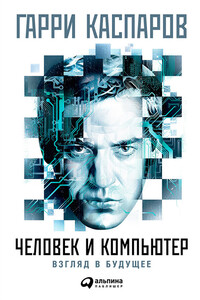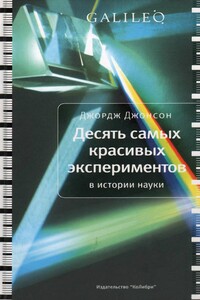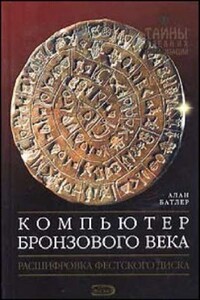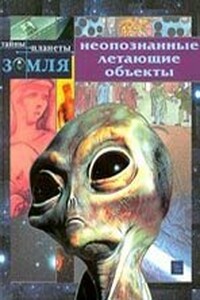Английский язык для специальных и академических целей: Международные отношения и зарубежное регионоведение. Часть 1 - [63]
On 3 March 1974, the leading New York Times journalist James Reston published a widely syndicated column that he headlined “The crisis of democracy”. His dateline was London. Reston had arrived to cover the outcome of the general election that had been called a month earlier in order to discover, as Prime Minister Edward Heath fatefully framed it, “who governs Britain”. The inconclusive result — a hung parliament, with Heath failing to get the backing he had asked for but Labour also short of a majority — prompted Reston to despair of western democracy more generally.
Heath and his rival Harold Wilson were typical of an age of “political technicians” who had forfeited the confidence of their electorates by their inability to muster a grand vision of politics. In place of idealism, they offered piecemeal fixes. The problem, however, was that although they were just technicians, they were also deeply partisan. “Mr Heath and Mr Wilson stick with the paradox that the country is in grave danger, but not so grave as to require their combining to save it,” Reston observed. “So they will muddle along separately, begging for votes from the minor parties . . .”
This, he felt, spelled disaster in the long run. “The political ‘decline of the west',” he concluded, “is no longer a subject for theoretical debate but an ominous reality . . .”
Many of these complaints are echoed today. Politics is petty and visionless. The deep causes of public disquiet are not being addressed, let alone remedied. The inconclusive muddle of British politics, exacerbated by a plague-on-all-your-houses result at the last general election in 2010, with perhaps worse to come next time, is happening against the backdrop of a global shift in power from west to east. The public has come to believe the politicians are in it only for themselves.
Yet it is important to recognise the many significant differences between the crisis of democracy of the 1970s and the crisis now. The first is that there existed a surprisingly widespread belief during the mid-1970s that, were the muddle to continue, it might need to be ended by force, with a military takeover. A coup was not outside the realms of political possibility (and we now know that rogue forces within the secret services made cack-handed attempts to organise one, with either the Duke of Edinburgh or Lord Mountbatten as the preferred strongman to replace Wilson).
The particular focus of these fears was rising inflation. It was a common assumption at the time that no democracy could survive a sustained bout of inflation above 30 per cent — and in Britain the rate hit 25 per cent in 1975. It was commonplace to invoke the baleful example of Latin America, where the global economic crisis of the mid-1970s led to the collapse of a number of democratic regimes. The economist Milton Friedman suggested in 1974 that the failure to control inflation had been responsible both for Heath's replacement by Wilson in Britain and for Allende's replacement by Pinochet in Chile. It cost one man his job; the other his life. The barely veiled sense of threat was apparent.
Today the talk of democracy-destroying inflation has more or less disappeared. Yes, we face a mix of rising prices and stagnant or falling wages — the “cost-of-living crisis”, as the Labour Party likes to call it — that has some echoes of 1970s stagflation. But the scale is very different. Ours is a slow-burning, incremental squeeze on living standards, not the threat of an inflationary rip tide sweeping away savings and security. In large part because of the fears generated in the 1970s, we now have economic technicians in charge of an independent central bank whose job is to ensure that inflation remains more or less under control. Likewise, the idea that the current crisis might result in a military coup seems laughably remote. We worry — or at least some of us do — that the military-security complex is squeezing what is left of our privacy by spying on our communications. We don't, however, worry that the security services are secretly plotting to instal a member of the royal family as an unelected head of the government.
The Reader
Connected to this is a more profound difference: in the 1970s there were in the air plenty of seemingly viable alternatives to western liberal democracy, and not just on the militarist right. On the left also the idea of revolutionary change was much more than simply a slogan: for its champions, it was a realistic possibility. The 1970s were a deeply ideological decade, during which alternatives to the prevailing democratic system were frequently aired and often taken seriously. Ours, by contrast, is a post-ideological age. When Russell Brand calls for the revolution he proclaims inevitable, it is not clear what kind of politics he has in mind. His only concrete notion is that greater political disengagement will precipitate the change. Political disengagement does not produce revolution. It just provides more space for the political technicians to operate.

Сегодня искусственный интеллект меняет каждый аспект нашей жизни — ничего подобного мы не видели со времен открытия электричества. Но любая новая мощная технология несет с собой потенциальные опасности, и такие выдающиеся личности, как Стивен Хокинг и Илон Маск, не скрывают, что видят в ИИ возможную угрозу существованию человечества. Так стоит ли нам бояться умных машин? Матчи Гарри Каспарова с суперкомпьютером IBM Deep Blue стали самыми известными в истории поединков человека с машинами. И теперь он использует свой многолетний опыт противостояния с компьютерами, чтобы взглянуть на будущее искусственного интеллекта.

В наше время научные открытия совершатся большими коллективами ученых, но не так давно все было иначе. В истории навсегда остались звездные часы, когда ученые, задавая вопросы природе, получали ответы, ставя эксперимент в одиночку.Джордж Джонсон, замечательный популяризатор науки, рассказывает, как во время опытов по гравитации Галилео Галилей пел песни, отмеряя промежутки времени, Уильям Гарвей перевязывал руку, наблюдая ход крови по артериям и венам, а Иван Павлов заставлял подопытных собак истекать слюной при ударе тока.Перевод опубликован с согласия Alfred A, Knopf, филиала издательской группы Random House, Inc.

Самые необычные природные явления: брайникл, фата-моргана, прибрежное капучино, огни Святого Эльма, шаровая молния, огненная радуга, огненный вихрь, двояковыпуклые облака, красные приливы, световые столбы, волны-убийцы.

Нам предстоит познакомиться с загадочным племенем рудокопов, обитавших около 2–4 тысячелетий назад в бассейне реки Россь (Западная Белоруссия). Именно этот район называл М. В. Ломоносов как предполагаемую прародину племени россов. Новые данные позволяют более убедительно обосновать и развить эту гипотезу. Подобные знания помогают нам лучше понять некоторые национальные традиции, закономерности развития и взаимодействия культур, формирования национального характера, а также единство прошлого и настоящего, человека и природы.http://znak.traumlibrary.net.

Созданный более 4000 лет назад Фестский диск до сих пор скрывает множество тайн. Этот уникальный археологический артефакт погибшей минойской цивилизации, обнаруженный на острове Крит в начале XX века, является одной из величайших загадок в истории человечества. За годы, прошедшие со дня его находки, многие исследователи пытались расшифровать нанесенные на нем пиктограммы, однако до настоящего времени ни одна из сотен интерпретаций не получила всеобщего признания.Алан Батлер предлагает собственную научно обоснованную версию дешифровки содержимого Фестского диска.
